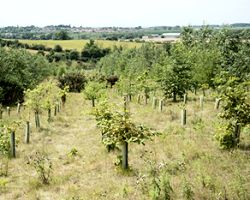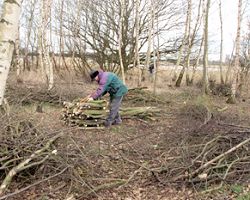Summary
What do woodland owners think about current trends in forestry management?
Summary
Strategic objectives set by the Forestry Commission and the Woodland Trust are driving an increase in the area and quality of woodland in the UK. Many studies have profiled the attitudes and decisions of woodland owners and/or their agents. Forest Research reviewed evidence from 34 previous studies to develop deep insights into this stakeholder group.
Key findings
- Owners have and plant woodland primarily for landscape, conservation and shooting, not production, profit or public recreation
- Owners feel a sense of custodianship for their woodland
 Farmers hold a shared culture which respects ‘correct’ land use, so they often refuse to plant trees on agricultural land
Farmers hold a shared culture which respects ‘correct’ land use, so they often refuse to plant trees on agricultural land- Availability of grants may influence people already interested in woodland, but does not to affect the choices of those who are not interested
- The complexity and bureaucracy involved in grant application is reported only in recent literature and appears to have increased considerably in the last few years
- Owners of existing woodland and newly planted woods both rated conservation highly
- Woodland owners show strong cultural and emotional connections to their land, not found among farmers, whose values favour production and ‘appropriateness’
- Personal contact with an advisor affects grant uptake for woodland creation, whereas advice alone may be enough to improve management of neglected woodland
Publications
- Full report – Landowners’ attitudes to woodland creation and management: A review of evidence in the UK
- Lawrence A. and N. Dandy (2014) Private landowners’ approaches to planting and managing forests in the UK: what’s the evidence? Land Use Policy 36: 351-360.
Funders and partners
Funded by the Forestry Commission and the Woodland Trust
Status
This project was completed spring 2010.
